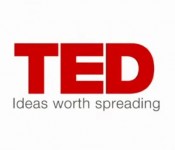 By Jamie Hughes, an Account Manager at Speakers Corner
By Jamie Hughes, an Account Manager at Speakers CornerTED Talks have gradually become a fruitful new resource for entrepreneurs, marketeers and financiers. Many have benefited from discovering inspirational talks from various speakers. Here is a TED talk that will inspire you to make important changes for your business:
Simon Sinek’s ‘Start With Why?’
Simon is an entrepreneur and author and is best known for his work on ‘start with why’, a project compiled of books, courses and webinars aimed at inspiring leadership in business. Sinek’s 2014 talk argues that the world’s most successful companies approach their business plans and marketing campaigns with the same question: “Why?” By including examples such as Martin Luther King to Apple, Sinek is able to identify a formula for inspirational leadership both in business and politics and believes a company’s mission statement needs to be clearly defined by “why the business exists”. This message is cemented throughout his talk when he uses phrases such as: “people don’t buy what you do, they buy why you do it” and urges listeners to think about the core purpose of their business or project.
His speaker style is slow and considered, although emphasis is given to phrases like the above. Sinek’s discussions begins to feel like a mantra and by the end of the talk it’s difficult to forget his message.



